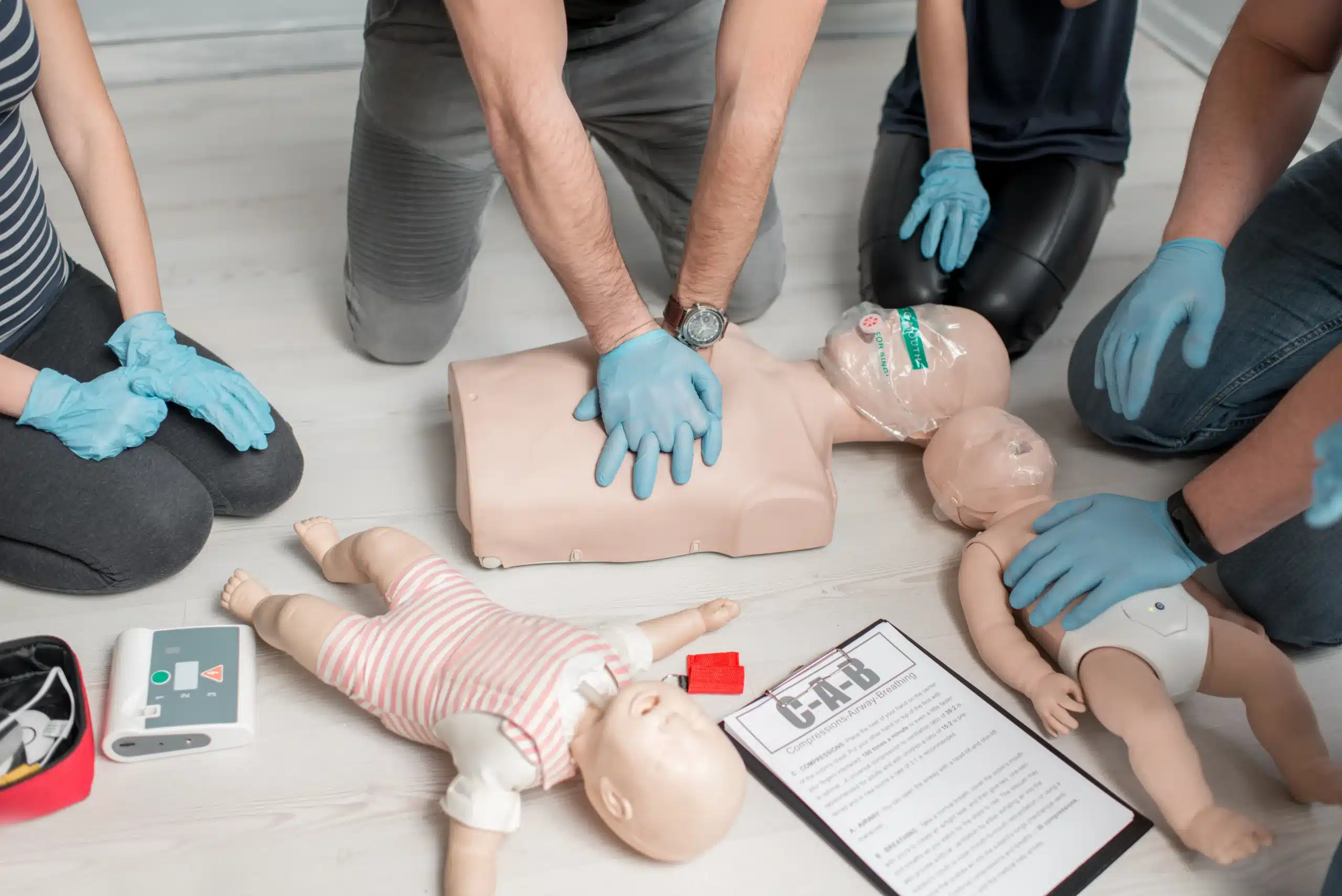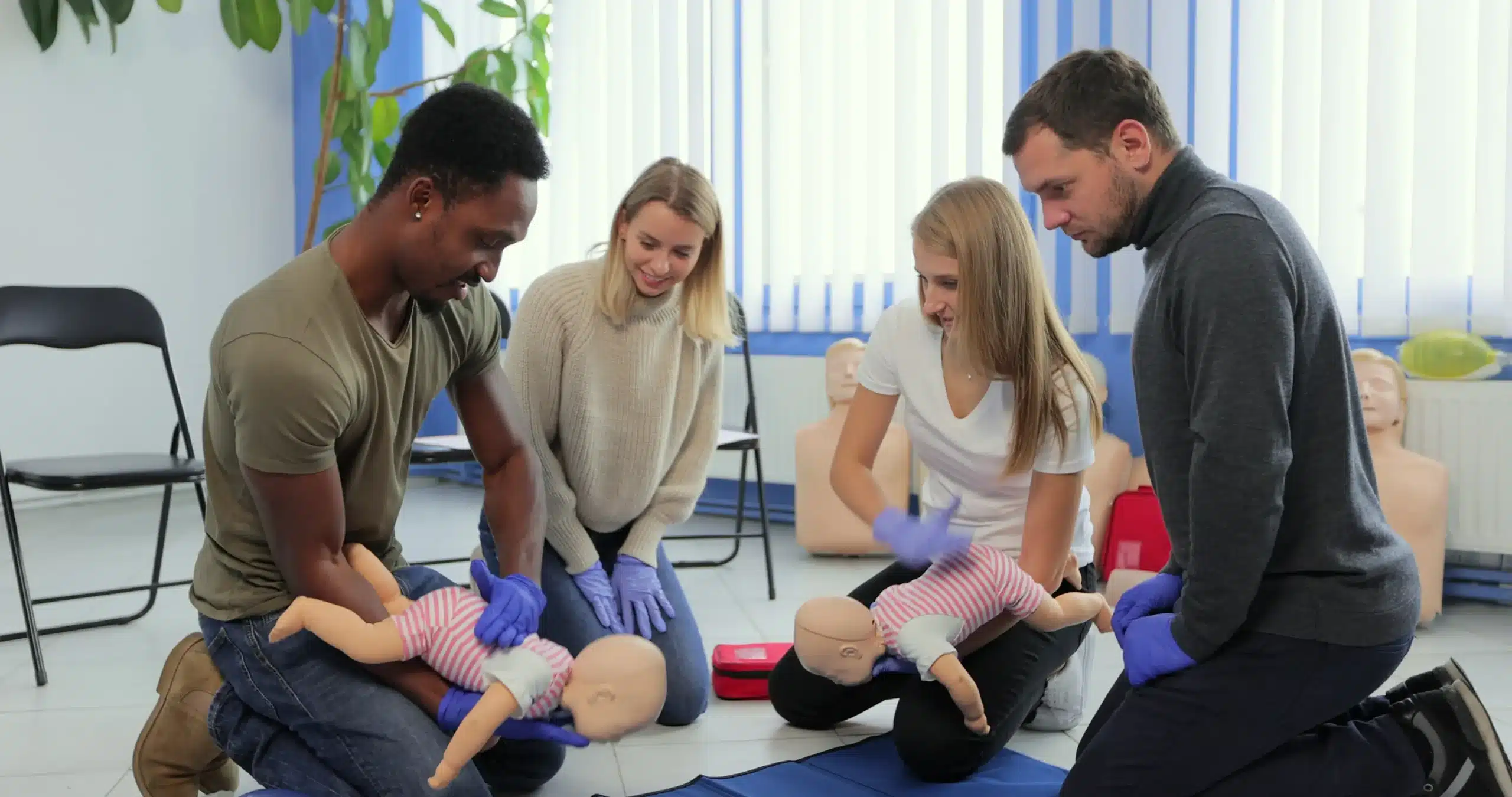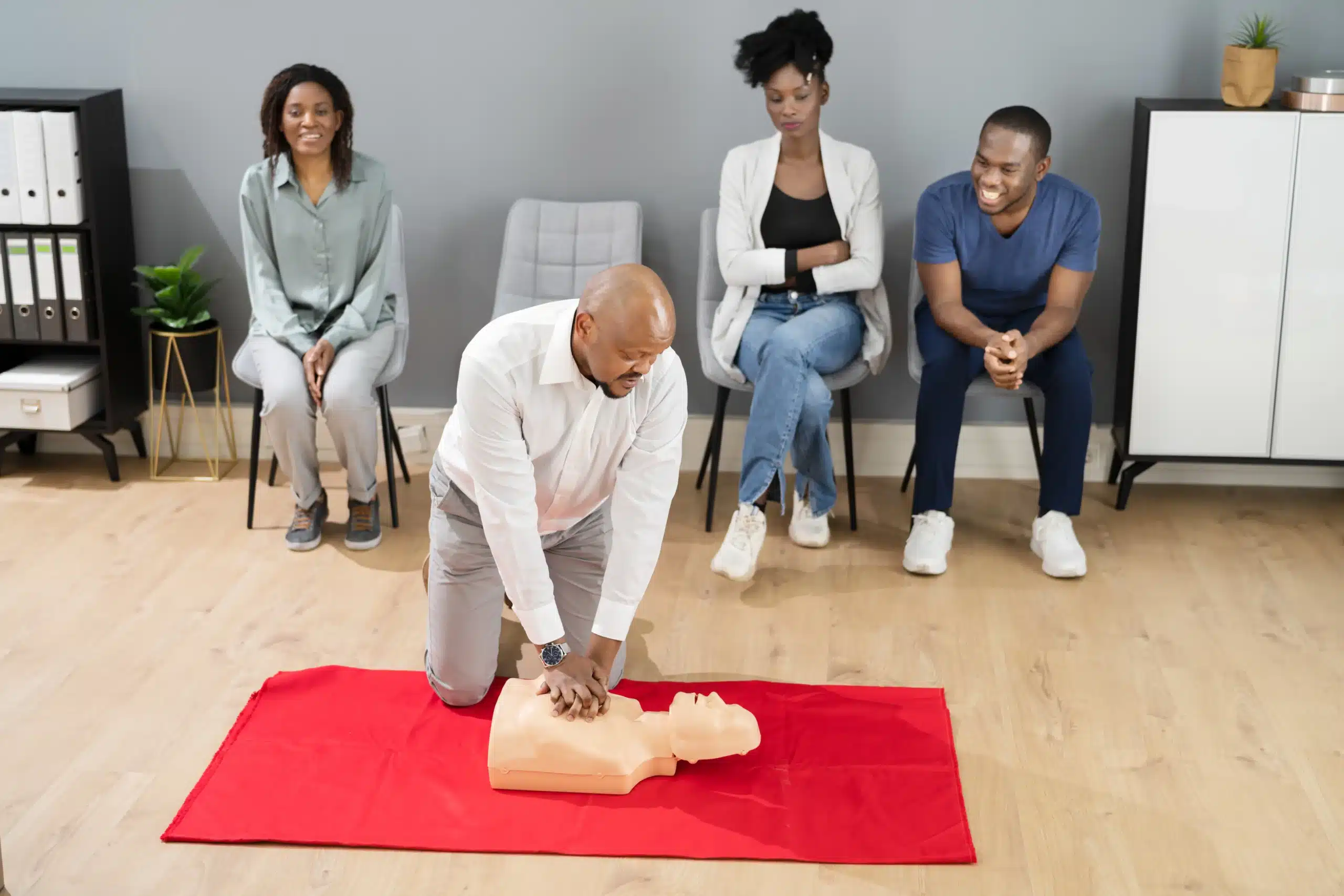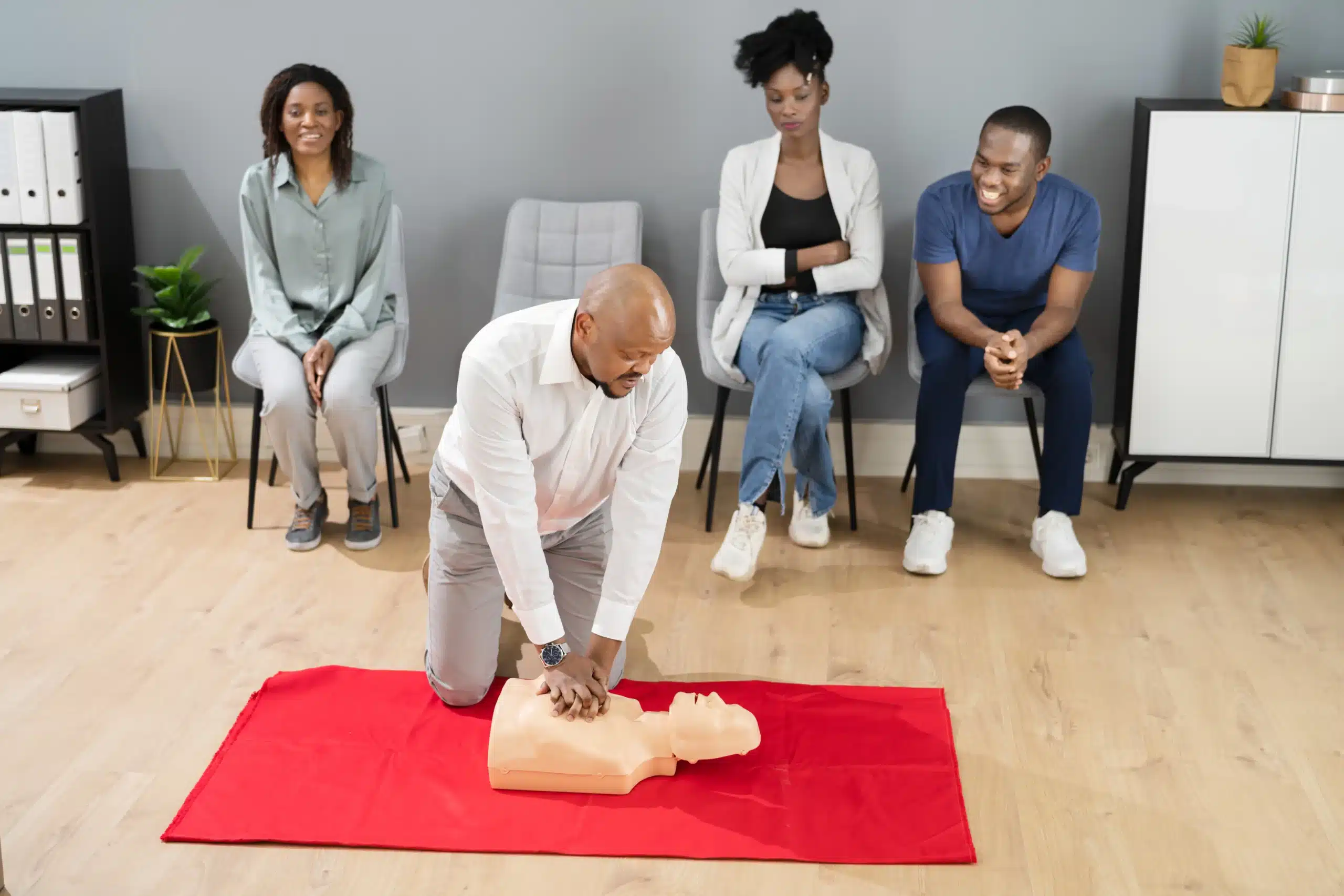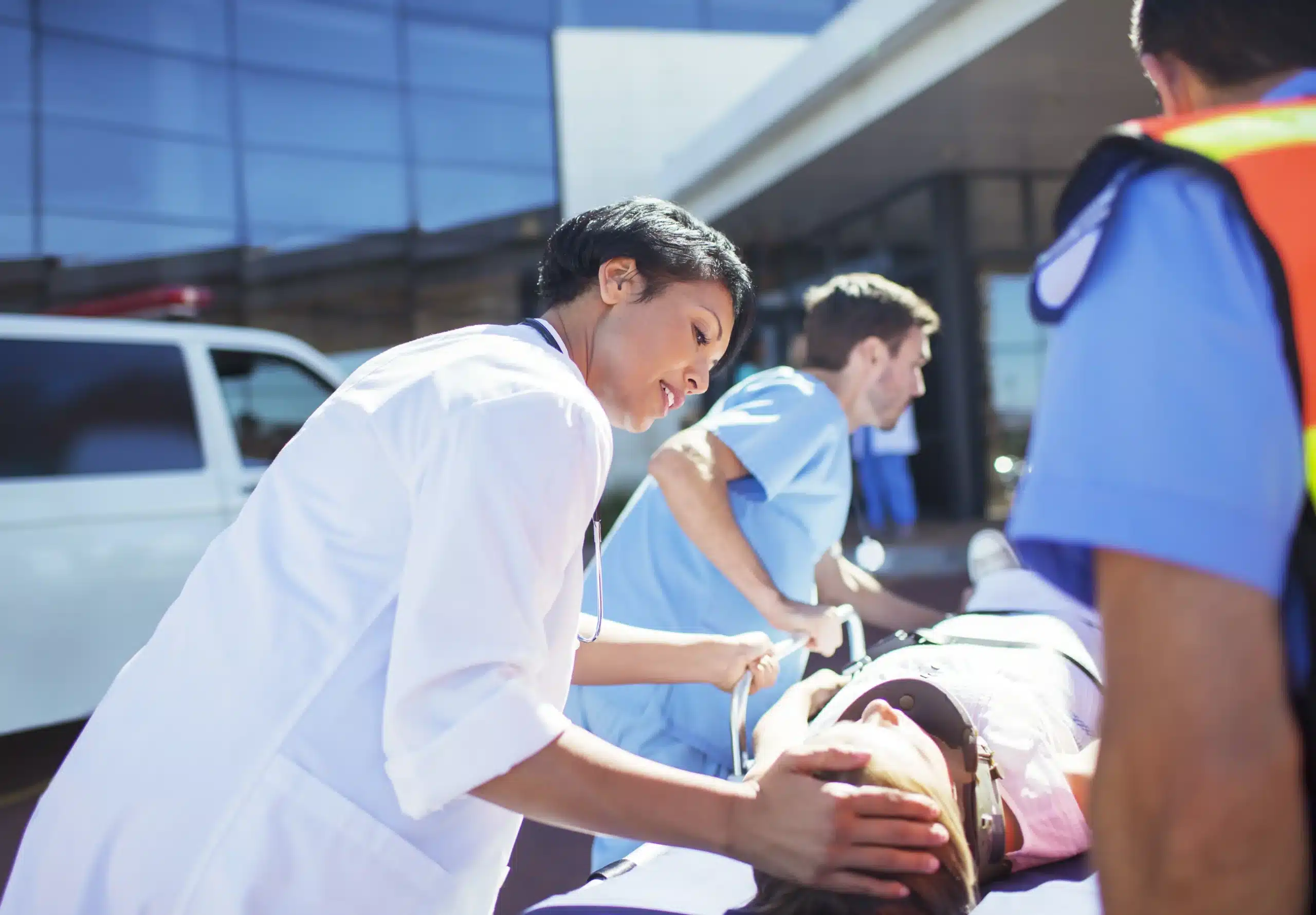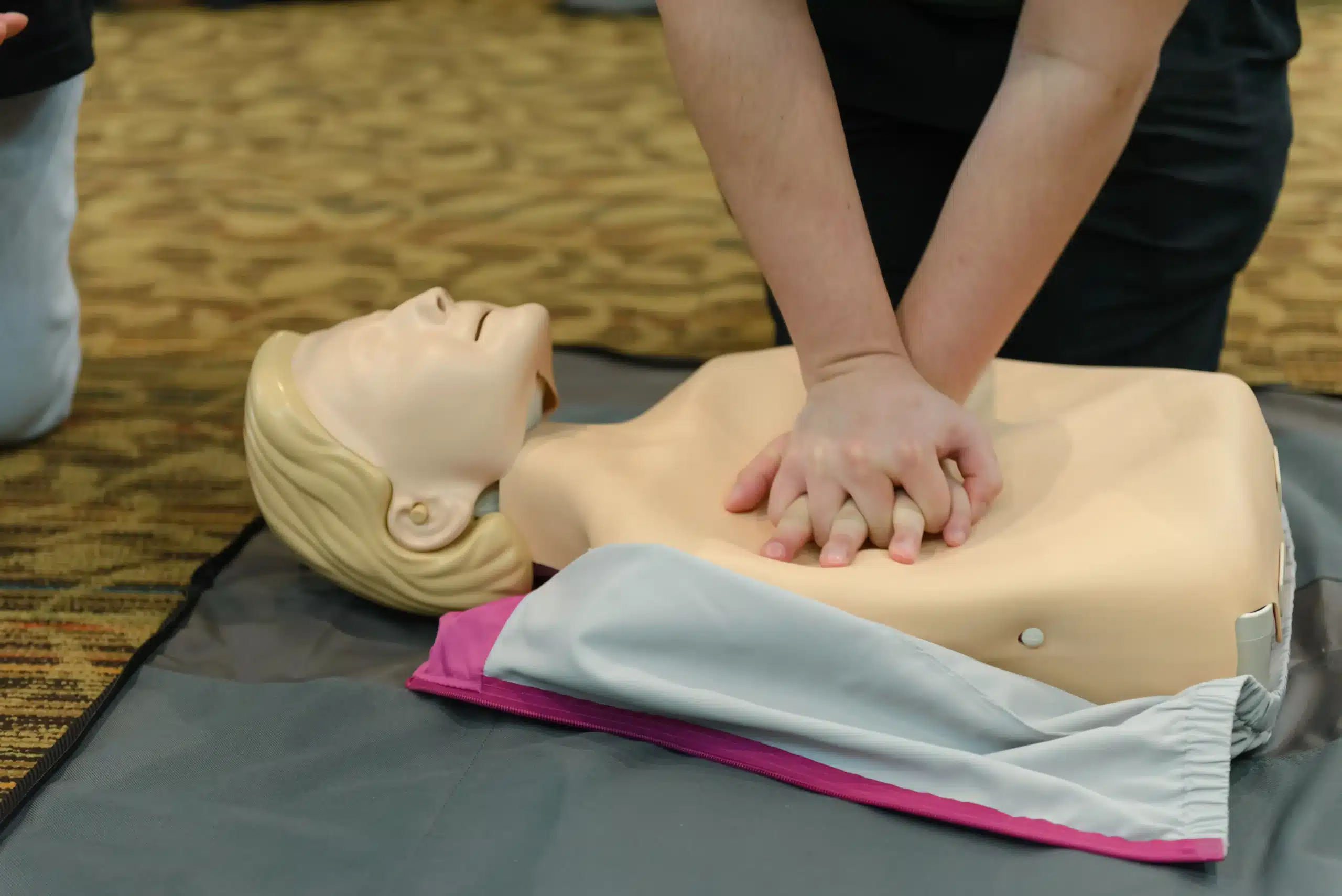Your CPR certification is more than just a piece of paper—it’s a testament to your ability to respond effectively in a medical emergency. But like any skill, CPR requires regular practice and updated knowledge. That’s where CPR renewal in San Francisco comes in. This comprehensive guide will walk you through the importance of renewing your CPR certification, the various courses available in San Francisco, the costs involved, and how to choose the right course for your needs. We’ll also debunk common misconceptions about CPR renewal and offer practical tips for maintaining your skills between renewals. Whether you’re looking for BLS, ACLS, PALS, or general CPR renewal in San Francisco, this guide has you covered.
Key Takeaways
- Regular CPR renewal is crucial: Staying up-to-date with the latest guidelines ensures you can confidently and effectively respond to emergencies, meeting both personal and professional preparedness goals.
- Choose the right course for your needs: Explore a variety of CPR renewal options, including online and in-person formats, as well as specialized certifications like BLS, ACLS, and PALS, to find the best fit for your learning style and career path.
- Maintain your skills between renewals: Reinforce your training through at-home practice, staying informed on guideline updates, and mentally rehearsing emergency scenarios to ensure you’re always ready to provide assistance.
What is CPR Renewal in San Francisco?
CPR certification, whether earned in a San Francisco classroom or online, is valid for two years. After this period, you’ll need to renew your certification to maintain your skills and stay aligned with the latest American Heart Association guidelines. CPR renewal courses in San Francisco cover the same core content as initial certification courses, but are often streamlined, focusing on refreshing essential techniques and covering any updated protocols. This ensures anyone holding a CPR certification can effectively respond to emergencies and provide aid. Renewal courses are readily available throughout the city, offering flexibility for busy schedules and various learning preferences, including in-person and online options. Choosing the right renewal course depends on your specific needs, whether you require basic CPR training or advanced certifications like ACLS or PALS.
Why Renew Your CPR Certification Regularly?
Knowing CPR empowers you to make a real difference in a critical situation. But like any skill, CPR techniques evolve. Regularly renewing your certification isn’t just a formality—it’s about ensuring you’re prepared to provide the most effective care. Here’s why staying current with your CPR certification is so vital:
Stay Updated on Latest Techniques
CPR guidelines and best practices are constantly being refined based on the latest scientific research. Renewing your CPR certification ensures you’re up-to-date on these changes, giving you the confidence to perform CPR correctly. This might include modifications to chest compression techniques, rescue breathing protocols, or how to recognize the signs of a heart attack. Staying informed could significantly impact the outcome of an emergency.
Meet Legal and Employment Requirements
Many professions, especially those in healthcare, education, and childcare, require valid CPR certification. Renewing your certification demonstrates your commitment to maintaining these crucial skills and ensures you comply with workplace standards. Check with your employer or licensing board to understand specific requirements for your field. This proactive approach can protect you from legal complications and demonstrate your professionalism.
Build Confidence in Emergency Situations
Facing a medical emergency can be incredibly stressful. Knowing you have current CPR training can significantly reduce panic and instill the confidence to act decisively. Regular CPR training reinforces the steps involved, making them second nature in high-pressure situations. This muscle memory and familiarity with the latest techniques can empower you to respond effectively and potentially save a life.
Top CPR Renewal Course Providers in San Francisco
Finding the right CPR renewal course can feel overwhelming with so many options. This section highlights reputable providers in San Francisco, outlining what they offer to help you make an informed decision.
Bay Area CPR
Bay Area CPR offers a convenient way to renew your CPR certification. They provide various courses, including BLS, ACLS, PALS, and Wilderness First Aid. With flexible scheduling and locations across the Bay Area—from San Francisco and Daly City to San Mateo and Oakland—they make renewing your skills accessible.
American Red Cross
The American Red Cross is a well-known provider of CPR and first aid training. They offer a range of courses in San Francisco through their certified training centers, many of which align with American Heart Association guidelines. This makes the Red Cross a reliable choice for those seeking nationally recognized certification.
Revive CPR
For those who prefer hands-on learning, Revive CPR offers instructor-led American Heart Association (AHA) certified CPR, BLS, and First Aid classes. Their focus on practical training and non-voice-assisted manikin (VAM) based instruction provides a valuable, real-world learning experience.
San Francisco Fire Department
Safety Training Seminars, associated with the San Francisco Fire Department, offers various AHA-certified courses. They cover everything from basic CPR to advanced life support, making them a comprehensive resource for all levels of training.
CPR Society
While not a direct provider of CPR courses, the CPR Society offers resources and information about CPR training. They often recommend established providers like the American Red Cross and Heart Start CPR for comprehensive CPR classes and certification, which frequently include First Aid training.
National CPR Foundation
If you’re looking for a quick and affordable online renewal option, the National CPR Foundation offers online CPR and First Aid recertification. Their certifications are valid for two years and are accepted nationally and internationally. This can be a good option for those needing a refresher or who have time constraints.
How to Renew Your CPR Certification: A Step-by-Step Guide
Renewing your CPR certification is straightforward. These steps will guide you through the process:
Check Your Current Certification Status
Before anything else, check your current CPR certification status. Certifications typically expire after two years. If your certification is within 30 days of expiring, you’re eligible for a renewal course. Knowing your expiration date helps you avoid a lapse in your certification.
Choose the Right Renewal Course
Select a renewal course that aligns with your needs. Bay Area CPR offers various CPR certification courses, including BLS, ACLS, PALS, and Wilderness First Aid. Consider which certifications are relevant to your profession or personal goals.
Decide Between Online and In-Person Options
Decide whether an online or in-person renewal course best suits your learning style. Online CPR certification is often more affordable than in-person training. However, in-person classes offer valuable hands-on practice and instructor interaction. Weigh the pros and cons of each format.
Understand Skills Assessment Requirements
Most CPR renewal courses include a skills assessment. This typically involves an in-person, hands-on skills session where you demonstrate your CPR proficiency. This practical evaluation ensures you can effectively perform CPR in an emergency. Confirm any assessment requirements with your chosen provider beforehand.
CPR Renewal Course Costs in San Francisco
CPR renewal courses in San Francisco typically cost between $50 and $150. Several factors influence this range, so understanding them will help you find a course that fits your budget and learning style.
Factors Affecting Course Prices
One of the biggest factors affecting price is the type of CPR certification you need. Basic Life Support (BLS) classes, for example, often differ in price from Advanced Cardiovascular Life Support (ACLS) or Pediatric Advanced Life Support (PALS) courses due to the advanced nature of the content. Similarly, specialized certifications like Wilderness First Aid may have different pricing structures. Bay Area CPR offers a range of courses to meet these diverse needs.
Another factor is the course format. Online CPR renewal is generally more affordable than in-person training. However, in-person classes at locations like Bay Area CPR provide valuable hands-on practice and direct instructor interaction, which many students find beneficial. Consider what type of learner you are and whether the added benefit of in-person training is worth the potential extra cost. Finally, the length of the course can also play a role. Some courses are more comprehensive and require more time, which can influence the overall price.
Find Potential Discounts and Savings
If cost is a concern, look for ways to save. Many providers offer discounts for group registrations. For example, if you’re renewing with colleagues or friends, see if registering together unlocks a lower price per person. Some organizations offer group discounts, sometimes 25% or more, for five or more people. It’s always worth asking about potential discounts, even if they aren’t advertised. Additionally, some employers or professional organizations may offer financial assistance or reimbursement for CPR renewal training. Check with your employer’s human resources department or your professional association for more information. Finding a course that meets your needs and budget is entirely possible with a little research.
What to Expect During CPR Renewal Training
CPR renewal training keeps your life-saving skills sharp. Here’s a preview of what your refresher course will entail:
Course Duration and Format
CPR renewal courses are streamlined and efficient. BLS renewal often takes just one session, sometimes as little as 4.5 hours, making it easy to fit into your schedule. You’ll find both online and in-person options. Online courses offer flexibility, while in-person CPR training provides hands-on practice and instructor interaction. Choose the format that best suits your learning style and needs.
Learn Updated Techniques and Guidelines
CPR guidelines change periodically to reflect the latest research. Your renewal course will cover these updates, ensuring you know the most effective techniques. Expect a review of core skills like chest compressions, rescue breaths, and AED use. Courses align with guidelines from organizations like the American Heart Association (AHA) and the ECC/ILCOR, so you can be confident you’re receiving standardized, high-quality training.
Participate in Hands-On Practice
Hands-on practice is essential for CPR renewal. In-person courses feature skills sessions where you’ll practice on mannequins with guidance from certified instructors. This helps build muscle memory and confidence. This practical training is key to preparing you for a real-life emergency.
Choose the Right CPR Renewal Course
Picking the right CPR renewal course depends on your specific needs. Whether you’re a healthcare professional, need certification for your workplace, or simply want to be prepared for emergencies, there’s a course out there for you. Let’s break down the options:
Healthcare Provider Courses (BLS, ACLS, PALS)
Healthcare providers, such as doctors, nurses, and EMTs, need specialized training to handle cardiac and respiratory emergencies. These certifications usually involve more advanced life support techniques. For instance, Basic Life Support (BLS) covers core CPR skills and how to use an AED. Advanced Cardiovascular Life Support (ACLS) goes deeper into managing cardiovascular emergencies. Pediatric Advanced Life Support (PALS) focuses on providing life-saving care to infants and children. Bay Area CPR offers BLS, ACLS, and PALS certification courses, with flexible scheduling to accommodate busy professionals.
Workplace Safety Courses
Many workplaces require employees to have CPR and First Aid certifications to maintain a safe environment. These courses often combine basic life support skills with training on how to respond to common workplace incidents. The specifics might vary by industry, but a solid foundation in CPR is essential. Safety Training Seminars offers various CPR and First Aid training options that meet workplace standards, often at competitive prices. Check with your employer to see what certifications they recommend or require.
General Public Courses (Heartsaver CPR/AED)
If you’re not a healthcare provider and your workplace doesn’t require CPR certification, a Heartsaver CPR/AED course is an excellent option. These courses give you the confidence to respond to emergencies at home, the gym, or in the community. They cover essential skills like CPR for adults, children, and infants, plus how to use an automated external defibrillator (AED). You can find Heartsaver courses through organizations like the American Red Cross and local community centers. Learning CPR is a valuable skill that can help you save a life.
Common CPR Renewal Misconceptions
It’s easy to misunderstand CPR renewal requirements. Let’s clear up some common misconceptions so you can stay on top of your training.
“CPR Certification is Permanent”
CPR guidelines and best practices change regularly. Your skills need a refresh every two years. This ensures you’re prepared to respond effectively in a real emergency. CPR certifications from the American Heart Association expire after two years. Check your card to confirm your certification’s expiration date.
“Only Healthcare Professionals Need CPR Certification”
Anyone can benefit from CPR training. Emergencies can happen anywhere, and having these skills can save a life at home, in public, or in the workplace. CPR training is valuable for teachers, coaches, parents, and anyone who wants to be prepared.
“CPR Training is Time-Consuming and Expensive”
CPR classes are designed to fit busy schedules. Many providers offer flexible options, including weekend and evening CPR classes in the San Francisco Bay Area. Some organizations even offer blended learning with online components to make training more convenient. Check with your local providers to find a course that fits your budget and schedule.
“CPR is Only for Adults”
CPR techniques vary depending on the age and size of the person needing assistance. It’s important to know how to perform CPR on infants, children, and adults. CPR training courses cover these differences, equipping you to handle a range of emergency situations.
Maintain Your CPR Skills Between Renewals
CPR skills, much like any other skill, can fade over time. Regularly refreshing your knowledge and techniques is crucial for ensuring you’re prepared to act confidently and effectively in a real emergency. This section offers practical advice on how to keep your CPR skills sharp between renewals.
Practice Techniques at Home
Hands-on practice is key to maintaining muscle memory and confidence in your CPR abilities. While you won’t have the same manikins used in a formal class setting, there are still valuable ways to practice at home. Review the CPR steps and practice chest compressions and rescue breaths on a pillow or cushion. Visualize different emergency scenarios and mentally walk through the appropriate responses. Even regularly reviewing the CPR sequence can significantly improve your recall and reaction time when it matters most. Many CPR courses, including those offered by Bay Area CPR, provide supplemental materials like printable instructions and videos to guide your at-home practice. Use these resources to reinforce your training and stay comfortable with the techniques.
Stay Informed About CPR Updates
CPR guidelines and best practices are constantly evolving as medical research advances. Staying informed about these updates is essential for providing the most effective care. The American Heart Association and the Red Cross are excellent resources for the latest CPR guidelines. Subscribe to their newsletters or follow their social media channels for timely updates. Consider taking refresher courses or workshops, even if your certification isn’t due for renewal yet. These opportunities reinforce your existing skills and introduce you to any new techniques or recommendations. Staying informed demonstrates your commitment to providing high-quality CPR and ensures you’re prepared to deliver the best possible care in any emergency.
Get the Most Out of Your CPR Renewal in San Francisco
Your CPR renewal is more than just a refresher course—it’s a chance to improve your skills and connect with other people. Here’s how to maximize your renewal experience:
Find Networking Opportunities
CPR renewal courses bring together people from diverse backgrounds, all committed to helping in emergencies. Take advantage of this opportunity to connect with fellow participants. You might meet healthcare professionals, community leaders, or simply like-minded individuals who share your passion for preparedness. These connections can be valuable personally and professionally. Bay Area CPR offers classes throughout the Bay Area, creating numerous opportunities to connect with people in your local community.
Develop Skill Retention Strategies
CPR skills can fade over time. Since CPR certification requires renewal every two years, it’s essential to develop strategies for retaining what you learn. Regularly review the material, and consider teaching basic techniques to family and friends. These simple steps can significantly improve your recall in a real emergency. If you have access to a mannequin, practicing on it can also be beneficial.
Apply CPR Knowledge in Real-Life Scenarios
While we hope you never have to use your CPR skills, being prepared is key. Think about how your training applies to different situations. Mentally rehearse the steps and consider how you would react under pressure. Organizations like the American Red Cross and Heart Start CPR offer resources and scenarios to help you apply your knowledge. This type of preparation can bridge the gap between the classroom and a real emergency.
Frequently Asked Questions
How often do I need to renew my CPR certification in San Francisco?
CPR certifications are valid for two years. To keep your skills current and aligned with the latest guidelines, you’ll need to take a renewal course before your current certification expires.
What’s the difference between initial CPR certification and renewal training?
Renewal courses cover the same core content as initial certification but are often shorter and more focused on refreshing essential techniques and addressing any updated protocols.
Where can I find CPR renewal courses in the San Francisco Bay Area?
Several organizations offer CPR renewal courses, including Bay Area CPR, the American Red Cross, and various community training centers. You can find in-person and online options to suit your schedule and learning preferences. Check with your employer or professional organization for recommendations as well.
How much does CPR renewal training typically cost?
The cost varies depending on the provider, the type of certification (BLS, ACLS, PALS, etc.), and the course format (online or in-person). Expect to pay somewhere between $50 and $150. Look for potential group discounts or employer reimbursements to help manage the cost.
What if my CPR certification has already expired?
If your certification has lapsed, you’ll likely need to retake the full certification course rather than a renewal course. It’s always best to renew before your certification expires to maintain uninterrupted certification and keep your skills sharp.

